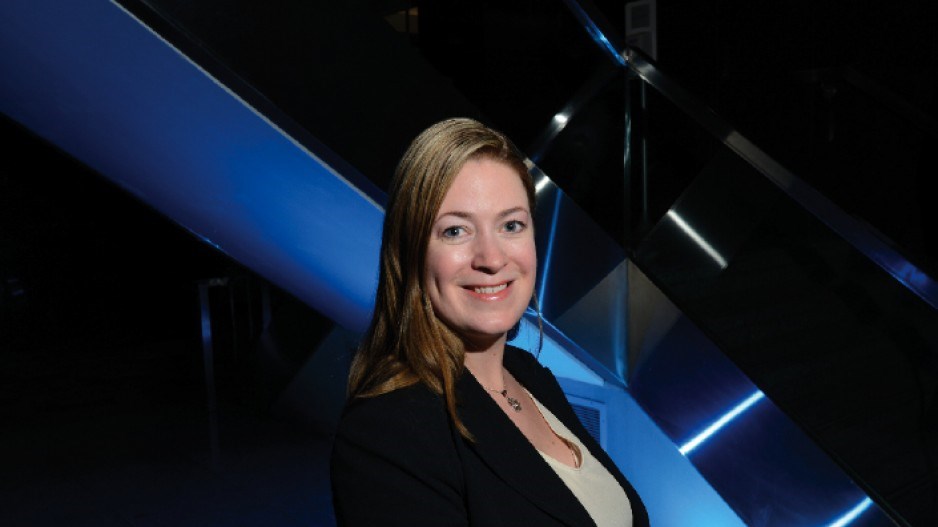When Selena Wilson talks about her job, she speaks of the reward of making an impact on society through problem solving, effective communication and strong leadership. These skills didn’t come with her university training: they were hard-won after the fact, once she was on the job and learning the real skill set of a consulting engineer.
“Every engineer is a little surprised by the skills needed for success, particularly the need for strong writing skills,” said Wilson. “Most engineers don’t particularly enjoy writing, but the further you go in your career, the more writing and communications you do.”
Wilson is a professional engineer and transportation consultant with McElhanney Consulting Services, most recently working as the highway design lead and civil co-ordinator on the Port Mann Bridge on-shore design project. She’s also the current chair of the Young Professional Forum (YPF) steering committee, a branch of the International Federation of Consulting Engineers (FIDIC).
The Young Professional Forum provides professional development conferences and seminars to consulting engineers with fewer than 10 years in the field. Programs range from international conferences to local breakfast seminars. Usual topics are those skills they didn’t learn in school: conflict resolution, problem solving, project management, effective communications, etc.
“We’re trying to get people out of their bubble and start networking,” said Wilson of the YPF’s active professional development programs. “Soft skills cannot be underestimated; it’s all about teamwork and people.”
Her boss agrees. Chris Newcomb, McElhanney CEO with 44 years on the job, has seen the role of consulting engineer evolve from mathematical wizard to effective communicator.
“Consulting engineers do not need to be brilliant mathematicians but very good project managers, public speakers and writers,” said Newcomb. He finds new engineers to be relatively unprepared, and often unaware, of the need for skills outside of technical engineering design. Technology has played a large role in this shift.
“What once took me all day to complete with a slide rule, a computer can now do in three seconds,” said Newcomb. Instead of focusing solely on calculations, engineers now have time to consider the bigger picture and address environmental, societal and economic consequences of their projects.
As an elected member of the committee that runs the FIDIC, Newcomb values the YPF’s role in helping prepare the younger generation for leadership roles. He believes the work that Wilson and her counterparts do outside of office hours is invaluable to McElhanney’s future.
“Selena stands in front of an audience of 500, from all over the world, and speaks in a polished and professional manner,” said Newcomb, who didn’t have those opportunities when he was starting out. “We have a new generation at McElhanney who believe in themselves and believe they can make a difference.”
Allison Clavelle is a transportation engineer at Urban Systems, an interdisciplinary consulting service. She is the current chair of the regional branch of YPF, the Association of Consulting Engineering Companies (ACEC), and a key organizer in the local YPF breakfast seminar series.
“The seminars are really growing – we’re getting 80 people at each breakfast event,” said Clavelle. She believes that companies are very supportive of engineers attending professional events, and that senior engineers play a large role in encouraging new graduates to develop non-technical skills.
“Business skills are essential to move up the ladder into project manager positions,” said Clavelle. “You spend half your time writing about your math; you need to learn to communicate technical information to a non-technical audience.”
Clavelle is getting a double education through her ACEC-BC role: she not only benefits from the seminars’ offerings, but is developing additional leadership skills through her committee involvement. Working together with other young professionals as well as senior engineers in advisory roles, Clavelle is making connections, tackling public speaking challenges and completing project management work for the committee’s various tasks. She is unfazed by the unexpected focus on writing instead of arithmetic.
“I love working with people who are passionate about their job,” said Clavelle of her position with Urban Systems. “My co-workers live and breathe what they do...it keeps me excited about my own career.”




